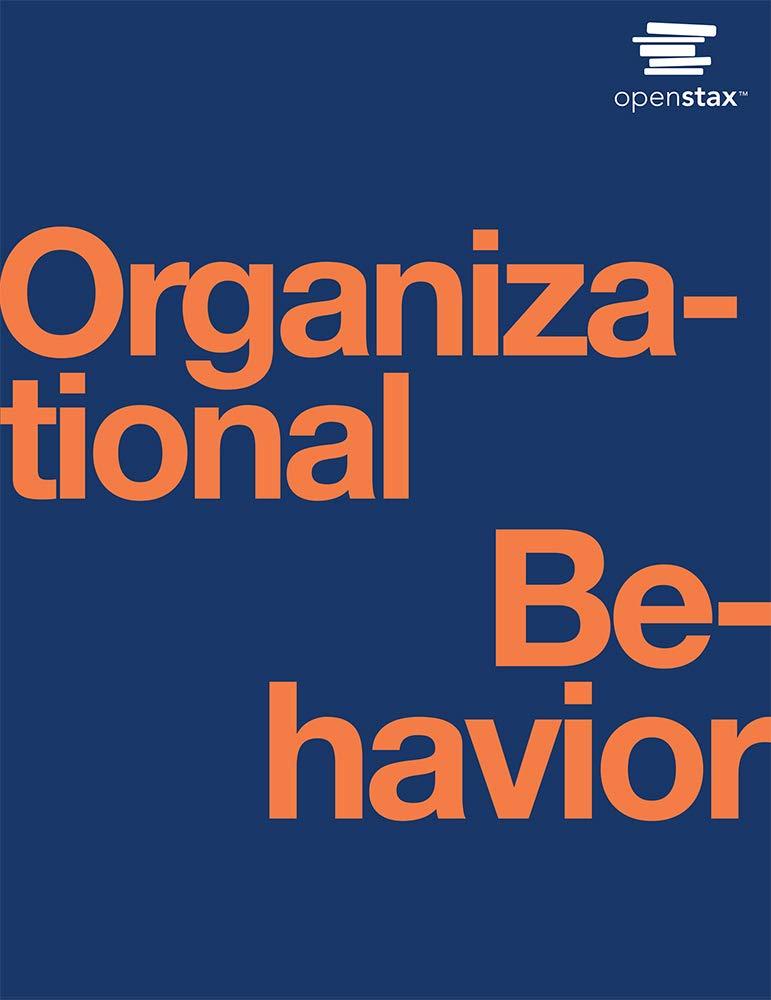The focus of a manager or a business owner is often primarily on doing well (making a
Question:
The focus of a manager or a business owner is often primarily on doing well (making a profit). Sometimes, though, organizational leaders choose to pursue two big goals at once: doing well, and simultaneously doing good (benefiting society in some way). Why? Generally because they think it’s an important thing to do. The business provides an opportunity to pursue another goal that the founders, owners, or managers are also passionate about. In the case of New Belgium Brewing, the company’s cofounders, Jeff Lebesch and Kim Jordan, were passionate about two things: making great beer and environmental stewardship. So it should come as no surprise that their brewery is dedicated to reducing its environmental footprint. The brewery has created a culture that fosters sustainability in a wide range of ways, such as by giving employees a bicycle on their one-year anniversary as a way to encourage them to ride bicycles to work. The organization is also active in advocacy efforts, such as the “Save the Colorado” (river) campaign, and it works hard to promote responsible decision-making when it comes to environmental issues. In fact, in 1999, following an employee vote, the brewery began to purchase all of its electricity from wind power, even though it was more expensive than electricity from coal-burning power plants (which meant reduced profitability and less money for employee bonuses).
While the brewery still relies primarily on wind power, it also now generates a portion of its electricity onsite—some from rooftop solar panels, and even more from biogas, the methane gas byproduct that is created by microbes in the brewery’s water treatment plant. The company cleans the wastewater generated from beer production, and in doing so it generates the biogas, which is captured and used for energy to help run the brewery.
Brewing is water intensive, so New Belgium works hard to reduce water consumption and to recycle the water that it does use. The company also reduces other types of waste by selling used grain, hops, and yeast to local ranchers for cattle feed. The company, which has been employee owned since 2013, also works with the local utility through a Smart Meter program to reduce their energy consumption at peak times.
All of these efforts at doing good must come at a cost, right? Actually, research shows that companies that are committed to sustainability have superior financial performance, on average, relative to those that are not. In coming up with creative ways to reduce, reuse, and recycle, employees often also find ways to save money (like using biogas). In addition, organizations that strive to do good are often considered attractive and desirable places to work (especially by people who have similar values) and are also valued by the surrounding communities. As a result, employees in those organizations tend to be extremely committed to them, with high levels of engagement, motivation, and productivity. Indeed, it seems clear that the employees at the New Belgium Brewery are passionate about where they work and what they do. This passion generates value for the organization and proves that it is, in fact, possible to do well while having also made the decision to do good. And in the case of New Belgium Brewery, that means working to protect the environment while also making delicious beer.
Discussion Questions
1. What challenges does New Belgium Brewery face in pursuing environmental goals?
2. Can you think of any other examples of companies that try to “do good” while also doing well?
3. Would you like to work for an organization that is committed to something more than just profitability, even if it meant your salary or bonus would be smaller?
Step by Step Answer:






